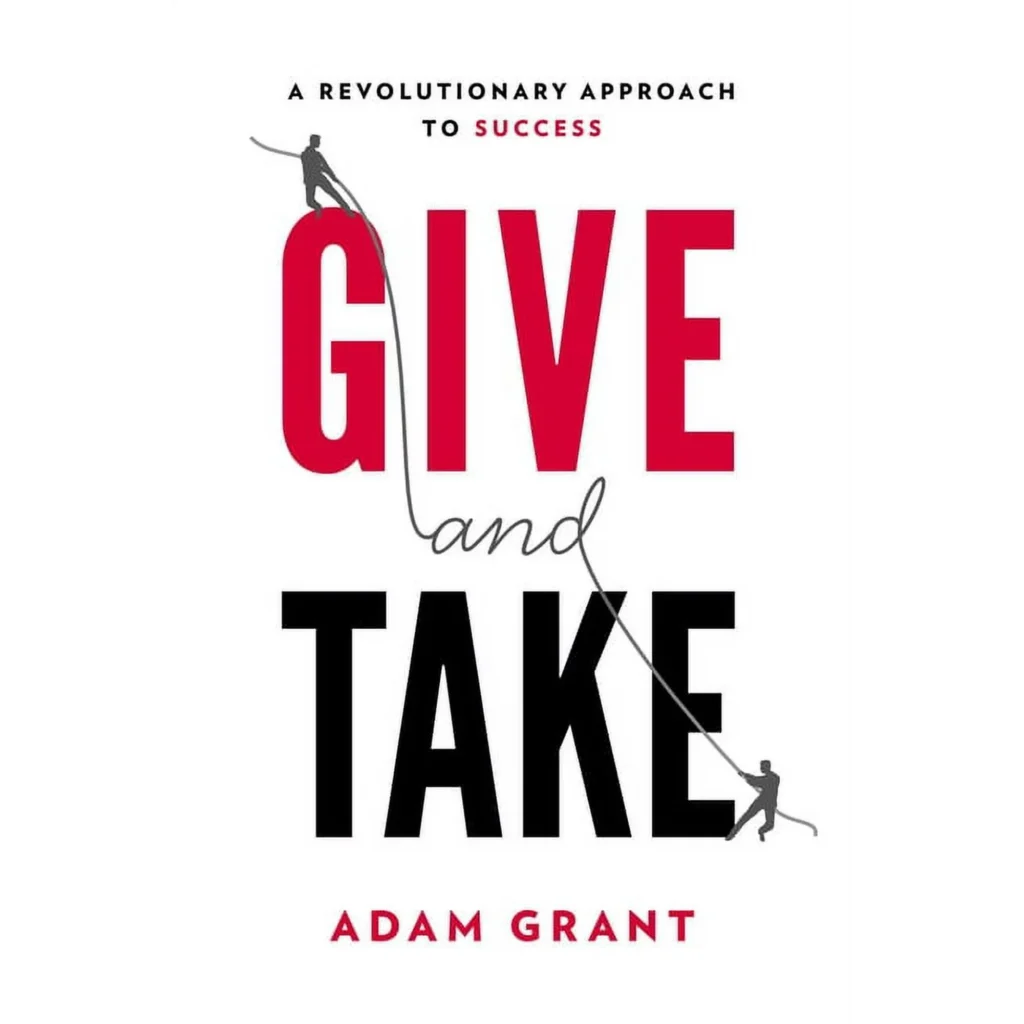Give and Take categorizes how we interact with others into three buckets (givers, takers, and matchers) and explains how givers end up on both the top and the bottom of the success ladder. Givers build effective networks, earn trust and respect of colleagues by putting the group’s interest ahead of their own, and are better able to persist through difficulty because of their commitment to others. Insightfully, Adam defines the quality of “otherish” to counter the two pitfalls of giving: getting burned out and being taken advantage of. This book has inspired me to help people more without keeping score and to share insights broadly for public consumption (i.e., this blog).
You should read this book if you…
- want to be more helpful but struggle with overextending yourself
- are looking to broaden your network
- want to be a better teammate and/or leader of a team
Additional Information
Year Published: 2013
Book Ranking (from 1-10): 9 – Excellent – Broad and very well articulated insights
Ease of Read (from 1-5): 3 – Average
Key Highlights
- Garden-variety takers aren’t cruel or cutthroat; they’re just cautious and self-protective. “If I don’t look out for myself first,” takers think, “no one will.”
- So if givers are most likely to land at the bottom of the success ladder, who’s at the top—takers or matchers? Neither. When I took another look at the data, I discovered a surprising pattern: It’s the givers again
- Networks come with three major advantages: private information, diverse skills, and power. By developing a strong network, people can gain invaluable access to knowledge, expertise, and influence. Extensive research demonstrates that people with rich networks achieve higher performance ratings, get promoted faster, and earn more money. And because networks are based on interactions and relationships, they serve as a powerful prism for understanding the impact of reciprocity styles on success
- But surprisingly, people were significantly more likely to benefit from weak ties. Almost 28 percent heard about the job from a weak tie. Strong ties provide bonds, but weak ties serve as bridges: they provide more efficient access to new information. Our strong ties tend to travel in the same social circles and know about the same opportunities as we do. Weak ties are more likely to open up access to a different network, facilitating the discovery of original leads
- This is a new spin on reciprocity. In traditional old-school reciprocity, people operated like matchers, trading value back and forth with one another. We helped the people who helped us, and we gave to the people from whom we wanted something in return. But today, givers like Adam Rifkin are able to spark a more powerful form of reciprocity. Instead of trading value, Rifkin aims to add value. His giving is governed by a simple rule: the five-minute favor. “You should be willing to do something that will take you five minutes or less for anybody.”
- When givers put a group’s interests ahead of their own, they signal that their primary goal is to benefit the group. As a result, givers earn the respect of their collaborators
- In my own research, I’ve found that because of their dedication to others, givers are willing to work harder and longer than takers and matchers. Even when practice is no longer enjoyable, givers continue exerting effort out of a sense of responsibility to their team
- Asking questions is a form of powerless communication that givers adopt naturally. Questions work especially well when the audience is already skeptical of your influence, such as when you lack credibility or status, or when you’re in a highly competitive negotiation situation
- New research shows that advice seeking is a surprisingly effective strategy for exercising influence when we lack authority
- Being otherish means being willing to give more than you receive, but still keeping your own interests in sight, using them as a guide for choosing when, where, how, and to whom you give. Being otherish is very different from matching. Matchers expect something back from each person they help. Otherish givers help with no strings attached; they’re just careful not to overextend themselves along the way
- Empathy leads to a sense of oneness, or self-other overlap, and this leads to greater helping. Batson’s team came back with another rebuttal: that is altruism. If we empathize with other people to the point of merging our own identities with theirs, we care about them as much as we care about ourselves. Because we no longer place our interests above theirs, helping them is purely altruistic

Discover more from The Broader Application
Subscribe to get the latest posts sent to your email.
